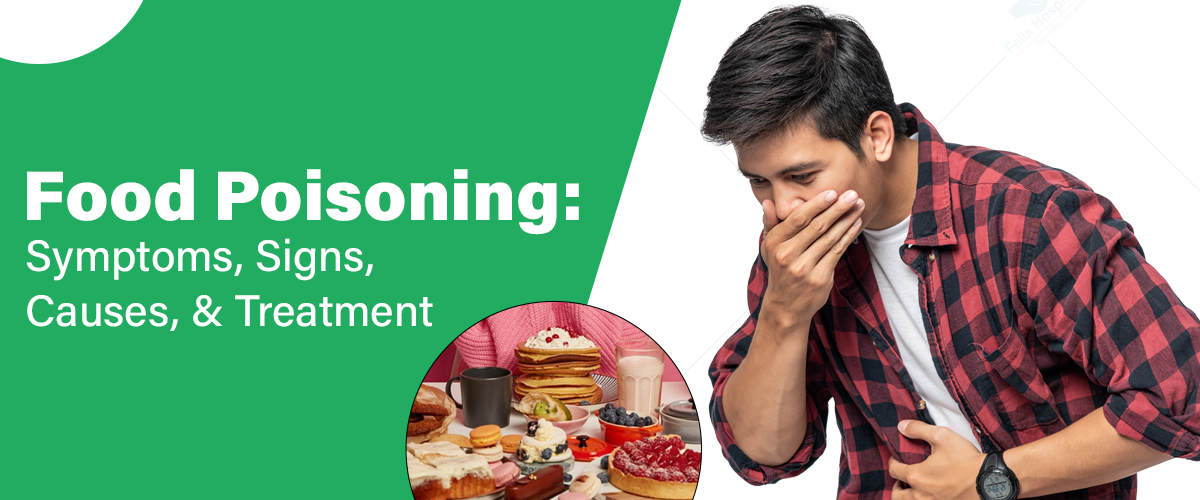Blitz News Digest
Stay updated with the latest trends and insights.
Don't Let Your Dinner Go Bad: Surviving Food Poisoning Nightmares
Uncover the shocking truths about food poisoning! Learn how to protect your dinner and avoid the nightmare of a bad meal.
Top 10 Foods That Are Most Likely to Cause Food Poisoning
Food poisoning is a serious health concern that can result from consuming contaminated foods. Certain foods are notorious for harboring pathogens that cause illness. Here are the top 10 foods that are most likely to cause food poisoning:
- Raw or undercooked meats, particularly poultry, which can carry bacteria such as Salmonella and Campylobacter.
- Raw eggs, which may be contaminated with Salmonella.
- Seafood, especially raw oysters, which can be rife with Vibrio bacteria.
- Unpasteurized dairy products, which can contain harmful pathogens like Listeria.
- Leafy greens, as they can host bacteria like E. coli if not washed properly.
- Raw sprouts, which thrive in warm environments and can harbor harmful bacteria.
- Processed meats, such as hot dogs and deli meats, which can be contaminated with Listeria.
- Unwashed fruits and vegetables, particularly those that are eaten raw.
- Rice and pasta, especially when reheated improperly, can develop Bacillus cereus.
- Ready-to-eat foods, particularly those left out at room temperature for too long.
Being aware of these high-risk foods can help you take precautions to prevent food poisoning. Always practice safe food handling techniques such as washing hands, cooking foods to their recommended temperatures, and storing leftovers promptly. By doing so, you can significantly reduce the risk of illness caused by these common culprits.

How to Recognize the Symptoms of Food Poisoning: A Quick Guide
Food poisoning can strike unexpectedly and lead to a range of distressing symptoms. The most common signs include nausea, vomiting, and diarrhea, which can usually be attributed to consuming contaminated food or beverages. Other symptoms might include stomach cramps, fever, and headaches. In some cases, symptoms may appear within hours of ingestion, while in others, it may take days for them to manifest.
Recognizing these symptoms early is key to preventing severe dehydration and other complications. If you experience any of the following, it's important to seek medical attention: blood in stool, persistent high fever, severe abdominal pain, or symptoms lasting more than three days. Being aware of these red flags can help you respond appropriately and safeguard your health.
What to Do If You Suspect Food Poisoning: Essential Steps to Take
If you suspect food poisoning, the first step is to assess your symptoms. Common signs include nausea, vomiting, diarrhea, abdominal pain, and fever. It's important to stay hydrated; drink clear fluids like water or electrolyte solutions to replace lost fluids. If symptoms are mild, you can often manage them at home. However, if you experience severe symptoms such as high fever (over 101.5°F), prolonged vomiting, signs of dehydration, or if symptoms persist beyond 48 hours, seek medical attention promptly.
In addition to seeking medical help if necessary, be proactive about identifying possible sources of contamination. Food poisoning can stem from undercooked meats, contaminated produce, or improper food storage. Monitor your food intake and try to remember what you ate leading up to your symptoms. Report any suspected foodborne illness to your local health department, as this can help prevent others from getting sick. Practicing good hygiene, washing your hands frequently, and ensuring food is properly cooked and stored are vital steps in preventing future incidents.